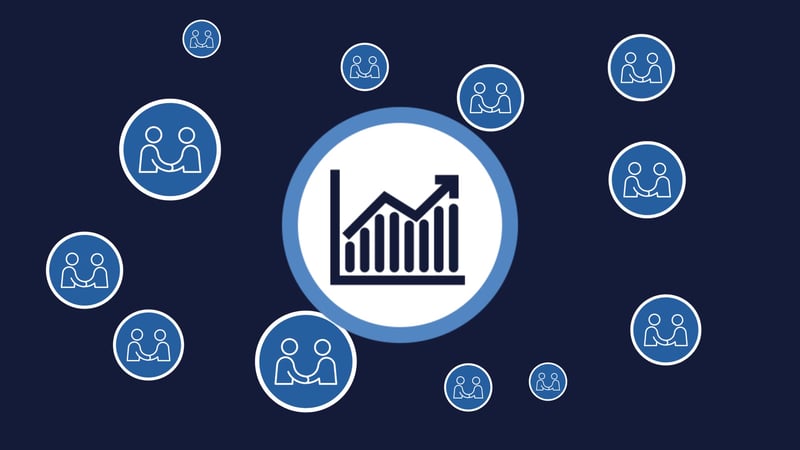2020 is shaping up to be a huge – and disruptive – year for manufacturing. Adoption of Industry 4.0 style systems, and the digital ecosystems which go along with them, is proceeding apace. The benefits of a digitally-focused workflow are becoming too clear to be safely ignored, and this is causing a rush towards digital transformation across the sector.
How is this going to impact the industry? Which trends are likely to be major disruptors in the years ahead? Based on our work within manufacturers, we see a number of important factors.
1. Increasing diversification
Companies in the 21st Century are learning lessons from the old adage about not keeping all your eggs in one basket. Because the market can be unpredictable, and disruptive new technology can emerge at almost any time, it’s rarely a good idea for a company to be locked into one single product or market. The trend is increasingly towards having more diverse product and service portfolios, as a hedge against disruption.
Even if one area of business comes under fire, they’ll have other options to fall back on. Those who do not diversify are risking huge loss, if the winds of change blow the wrong way.
2. Partnerships can be as good as M&A
Diversification doesn’t necessarily mean mergers and acquisitions. According to industry watchers at Deloitte, M&A volume is actually down by about 1/3 year-over-year between 2018 and 2019. When M&A is performed, it’s smart and strategic rather than a buying spree.
That’s because, increasingly, partnerships work just as well. As part of the push towards ecosystem-based business models, companies are more willing to talk in terms of quid-pro-quo relationships between relatively equal partners. Sharing technology, sales, and other resources can ultimately be a win-win proposition for everyone involved.
3. More moves towards renewables
The “green” movement is making deep inroads into the industrial sector, with large entities looking to wean themselves off of non-renewable energy sources such as fossil fuels. While completely changing over energy sources is a huge long-term commitment, surveys show nearly 2/3 of industrial operations committing to substantially reduce their reliance on non-renewable energy over the course of the next five years.
Increasingly, green energy sources are as cheap – or cheaper – than fossil fuels, and with more predictable costs as well. Combine that with the big PR boost from ‘going green’ and it’s a very attractive proposition all around.
4. Increased use of smart systems
It’s easy to think of “Industry 4.0” initiatives as being something that only happens in the factory, such as adding smarter gauges to monitor equipment. However, industry is finding that this is only the beginning. We’re seeing businesses increasingly investigating the potential for heuristic machine learning to give them greater insights into their own business, as well as greatly enhancing the predictive side of business planning. It’s now possible to anticipate shifts in demand, supply line capacity, and more, with greater accuracy than ever before – with the right investments into computer systems capable of these predictions.
FUSE Facilitates Your Growing Ecosystem
FUSE is the revolutionary new platform from LogicBay which is the first in its class – a free-to-use software platform designed specifically to grow ecosystems, encourage collaboration, and make eLearning easy.
To learn more about how FUSE can aid your own digital transformation, just contact us!

